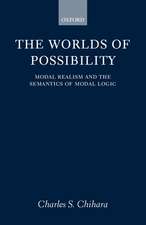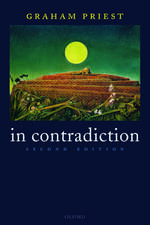Ludwig Wittgenstein - A Cultural Point of View: Philosophy in the Darkness of this Time
Autor William J. DeAngelisen Limba Engleză Paperback – 27 feb 2017
| Toate formatele și edițiile | Preț | Express |
|---|---|---|
| Paperback (1) | 489.26 lei 6-8 săpt. | |
| Taylor & Francis – 27 feb 2017 | 489.26 lei 6-8 săpt. | |
| Hardback (1) | 1054.71 lei 6-8 săpt. | |
| Taylor & Francis – 21 iun 2007 | 1054.71 lei 6-8 săpt. |
Preț: 489.26 lei
Nou
Puncte Express: 734
Preț estimativ în valută:
93.62€ • 97.75$ • 77.48£
93.62€ • 97.75$ • 77.48£
Carte tipărită la comandă
Livrare economică 04-18 aprilie
Preluare comenzi: 021 569.72.76
Specificații
ISBN-13: 9781138274372
ISBN-10: 1138274372
Pagini: 204
Dimensiuni: 156 x 234 x 11 mm
Greutate: 0.45 kg
Ediția:1
Editura: Taylor & Francis
Colecția Routledge
Locul publicării:Oxford, United Kingdom
ISBN-10: 1138274372
Pagini: 204
Dimensiuni: 156 x 234 x 11 mm
Greutate: 0.45 kg
Ediția:1
Editura: Taylor & Francis
Colecția Routledge
Locul publicării:Oxford, United Kingdom
Notă biografică
William J. DeAngelis is Associate Professor of Philosophy at Northeastern University, Boston, MA, USA.
Recenzii
’William James DeAngelis has produced a work that is careful and scholarly while at the same time very original. It guides the reader clearly and methodically to the conclusion that there are new and important questions to be asked about Wittgenstein's philosophical intentions. Having done this, he proposes resolutions to those questions. Some of these are unconventional, but all of them are plausible, interesting and very well argued. It is the first book-length discussion of a dimension of Wittgenstein's thought that has been neglected.’ John V. Canfield, University of Toronto, Canada ’DeAngelis gives us a highly spiritual, if dispirited Wittgenstein, one who expected faith to find no home in his times, but who nonetheless sought to steer us, if not in the right way, at least away from paths that only enervate and confuse.’ Heythrop Journal
Cuprins
Preface; Wittgenstein and “The Darkness of this Time”; Chapter 1 Spengler’s Influence on Wittgenstein: A First Approximation; Chapter 2 Wittgenstein’s Spenglerian Assessment of his Time; Chapter 3 Philosophy for a Time of Civilization: Spengler’s; Desiderata; and the; Investigations; Chapter 4 The; Investigations; as a Philosophy of Culture; Chapter 5 Religious Inexpressibility: Continuity and Change from Wittgenstein’s Early to Late Views; Chapter 6 A Religious Viewpoint in Wittgenstein’s Later Writings?; Chapter 7 Was Wittgenstein a Spenglerian Atheist?; Chapter 8 Afterword;
Descriere
This book focuses on the fascinating connection between Wittgenstein and Oswald Spengler and in particular the acknowledged influence of Spengler's Decline of the West. His book shows in meticulous detail how Spengler's dark conception of an ongoing cultural decline resonated deeply for Wittgenstein and influenced his later work. In so doing, the work takes into account discussions of these matters by major commentators such as Malcolm, Von Wright, Cavell, Winch, and Clack among others. A noteworthy feature of this book is its attempt to link Wittgenstein's cultural concerns with his views on religion and religious language. DeAngelis offers a fresh and original interpretation of the latter.



















